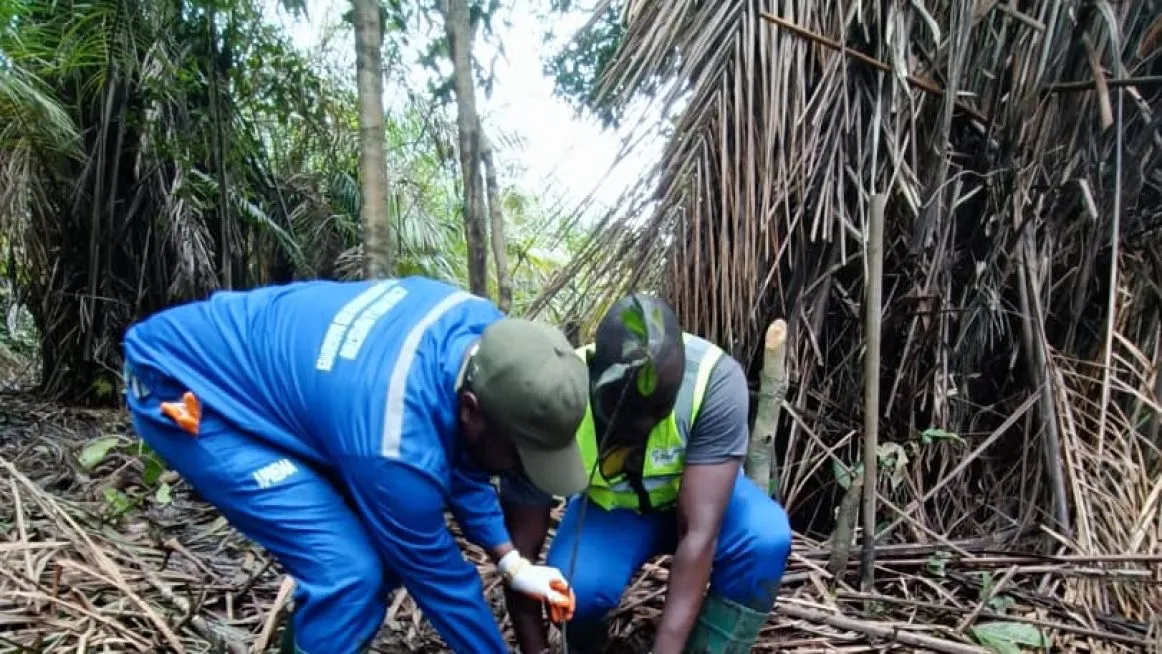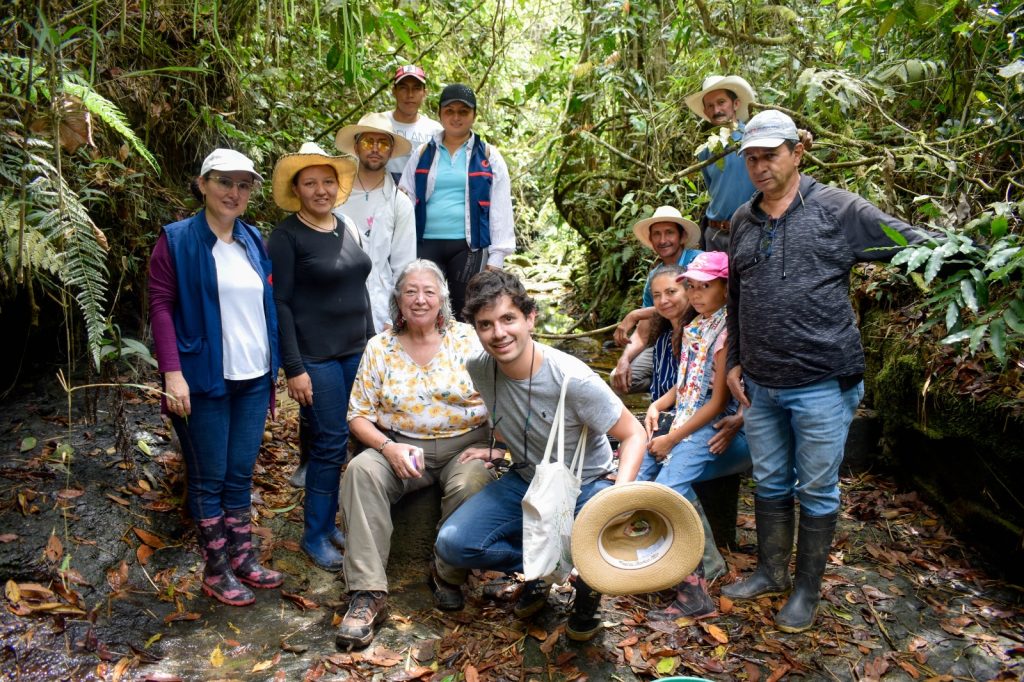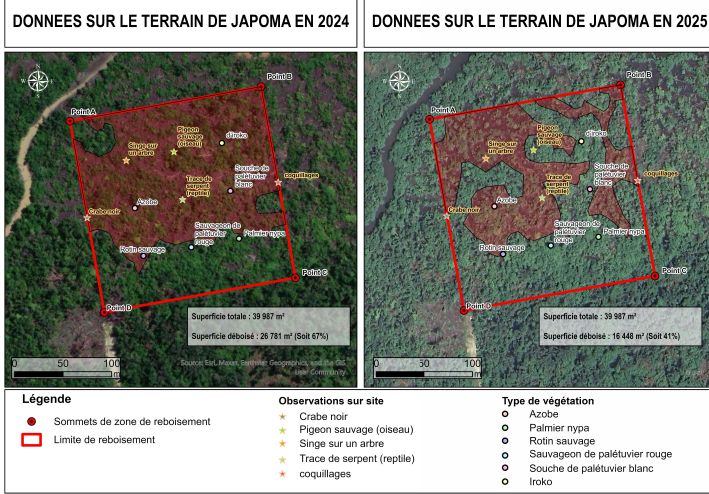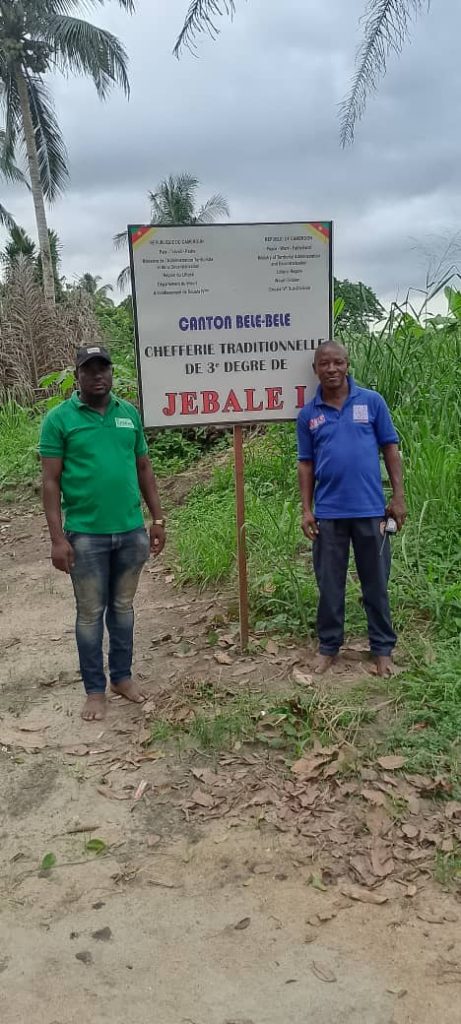en

The setec Foundation team is pleased to present the results of two wonderful projects with tangible impacts: the restoration of a community aqueduct in Colombia and the rehabilitation of mangroves in Cameroon.
What do they have in common? A strong participatory approach, serving communities and preserving their environment.
These successes perfectly illustrate the setec Foundation’s commitment to sustainable projects.
Discover two high-impact projects for local communities, recently completed and supported by the setec Foundation, with the active involvement of our employees in the field.
1. Colombia: A Sustainable Aqueduct Project at the Heart of a Rural Community
Supported by the setec Foundation, an ambitious project to rehabilitate the drinking water network was carried out in the rural village of Quitasol, Colombia. Winner of the 2022 Annual Campaign dedicated to sustainable construction in Latin America, this project highlights engineering in the service of people, the environment, and local development.
A Key First Phase in 2023
Launched in 2023 by the El Comun association, the rehabilitation of the community aqueduct unfolded in three main stages:
-
A field mission carried out on a voluntary basis by engineers from Gómez Cajiao (GCA) — including Sergio Andres Bermudez, Martha Obando Ortega, and Claudia Patricia Hernandez — to map the network and analyze water quality.
-
A comprehensive technical assessment, including a hydrological study and renovation proposals.
-
Construction work undertaken by local residents themselves, strengthening their skills and preserving community governance.
This first phase enabled 372 farmers to benefit from a renovated aqueduct, with no impact on biodiversity. The setec Foundation provided €41,000 in funding, with the active involvement of several GCA engineers and Mariana Escobar (setec international), who acted as the project’s sponsor and translator.
2024–2025: Moving Toward Greater Autonomy and Sustainability
Thanks to new funding of €38,938, the second phase aims to consolidate the progress achieved and integrate ecological solutions.
Key actions:
-
A technical mission in July 2024 led by GCA engineers to guide investment decisions.
-
Installation of 16 tubular biodigesters following a participatory survey — enabling wastewater treatment, biogas production, and biofertilizer generation.
-
Training of 24 people, including the 16 beneficiary families, in the use and maintenance of the biodigesters.
-
Hydraulic works starting in early 2025, including sealing of the main reservoir, construction of two additional 15,000 L tanks, installation of deeper pipelines, and building of a desander system.

2. Cameroon: A Mangrove Restoration Project Serving Local Communities
By mid-2025, a flagship project led by the APREMA association (Action for the Protection and Restoration of Mangroves) in Cameroon has come to a successful close. Winner of the 2023 Annual Campaign of the setec Foundation, this project aimed to restore 6 hectares of mangroves in the Douala region through a participatory approach, while fostering the economic autonomy of nearby communities.
A Community-Based Project to Protect Ecosystems (2024–2025)
Between February 2024 and July 2025, APREMA implemented a project combining reforestation, economic diversification, and local engagement.
After a diagnostic phase and the acquisition of both official and traditional authorizations, 6 hectares were replanted with 5,400 mangrove trees, achieving a 90% survival rate and encouraging the return of species such as antelopes, monkeys, and crustaceans.
To ensure long-term impact, over 100 people were trained in snail and beetle farming, while 70 others learned how to produce eco-friendly charcoal from household waste. These activities significantly reduced wood cutting while generating additional income.
The project brought together the villages of Jebale and Japoma, with the active participation of local chiefs, women, youth, and 22 community organizations.
Awareness campaigns — through posters, educational materials, and social media — generated over 2,500 positive responses, reflecting strong community support.
In response to local needs, the project will evolve to replace part of the training program with a high-yield community cassava field.
This initiative was made possible thanks to the setec Foundation’s support (€41,600) and the involvement of Cynthia Tuwa and Norbert Kouawa (setec Cameroon), who were repeatedly present in the field to guide activities and represent the Foundation. They also facilitated knowledge exchange with another local association working to empower single mothers.
A Local Model of Sustainable Development
By combining ecological restoration, sustainable economic solutions, and strong community engagement, the APREMA project stands as an inspiring example of integrated action in support of both the environment and local development.

